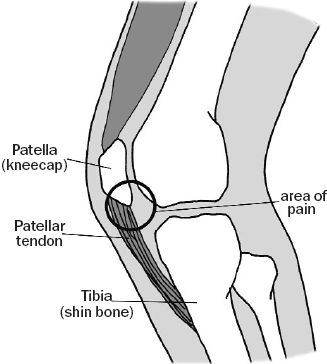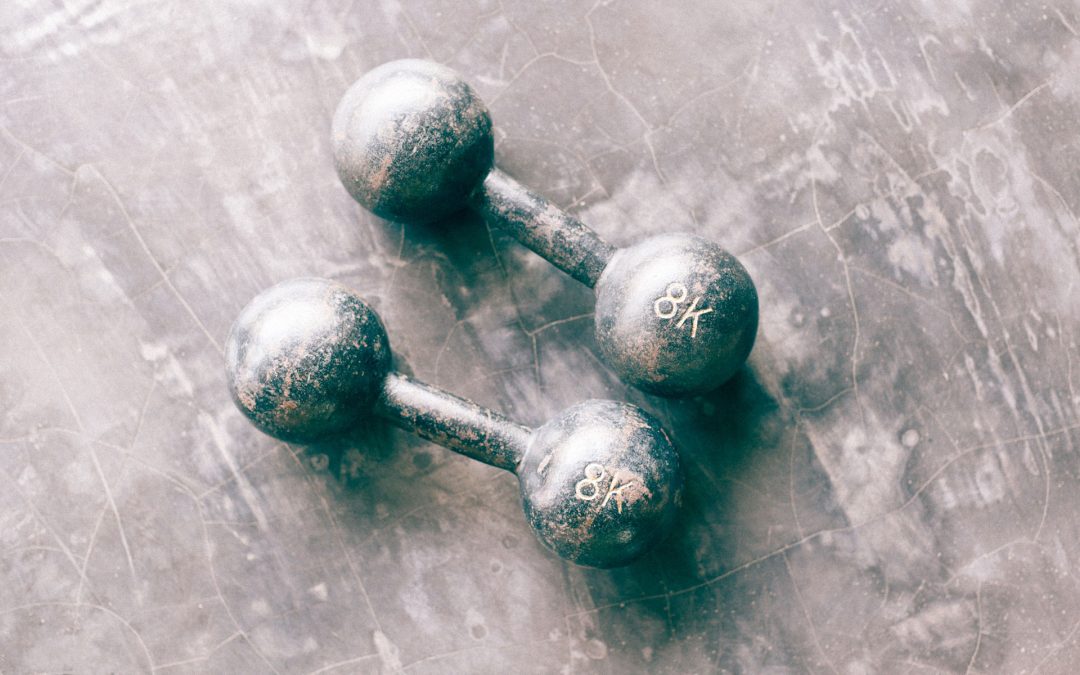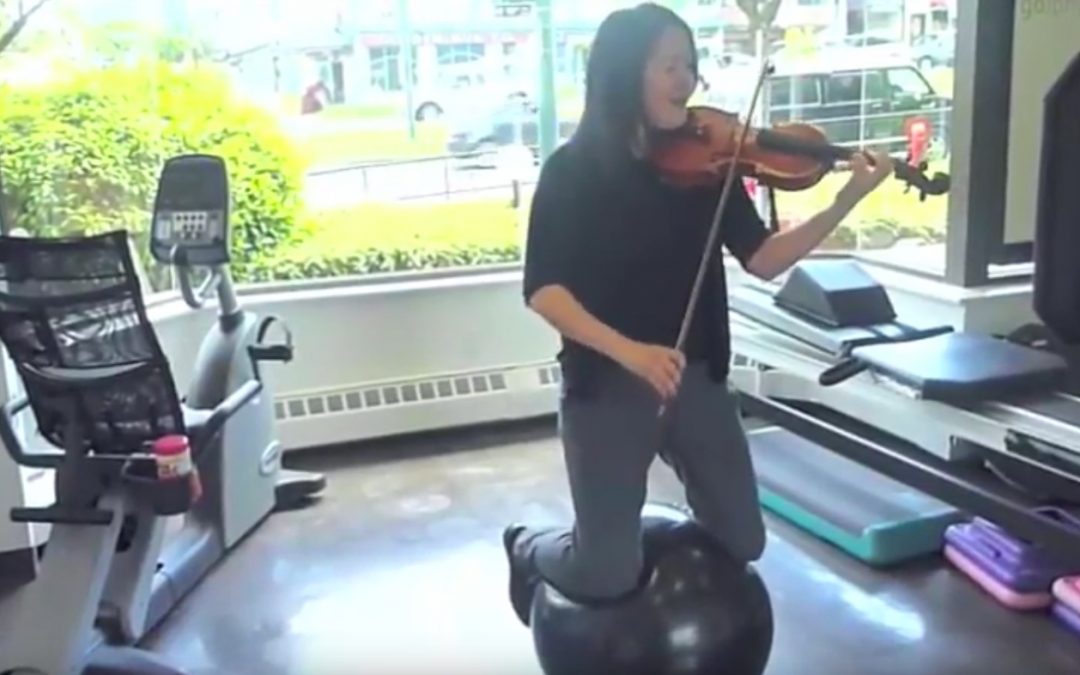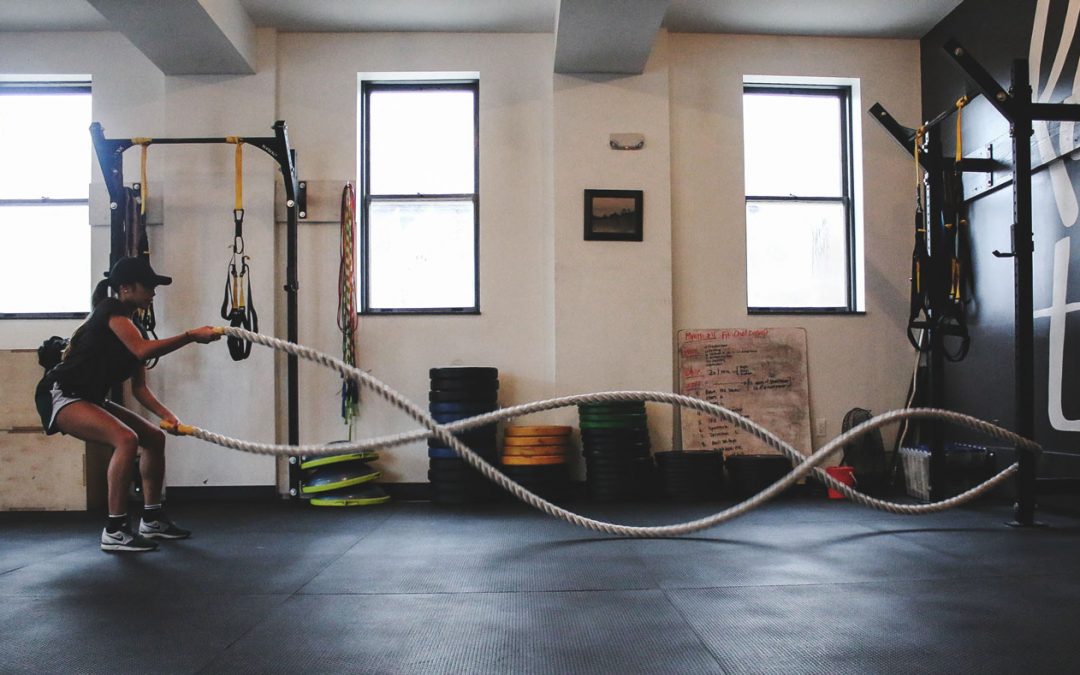RESOURCE LIBRARY
Understand and Treat Jumper’s Knee (Patellar Tendinopathy)
Patellar tendinopathy, sometimes referred to as “jumper’s knee”, is a common condition encountered in sports medicine.
However, this term is misleading as this condition is found in a wide variety of athletes, many of who do not partake in activities that include jumping.
Unfortunately, its origin and development are poorly understood, and thus it is a troublesome condition that is difficult to treat. It is considered an overuse injury characterized by activity-related, anterior (front) knee pain associated with focal patellar-tendon tenderness just inferior (below) the patella.
If the tissue is not allowed to fully recover, injury is inevitable.
Patellar tendinopathy is degenerative by nature and thus even if asymptomatic, tendon damage can be present. If the tissue is not allowed to fully recover, injury is inevitable.

A detailed look at patellar tendinopathy, or “jumper’s knee”.
Figure via www.pponline.co.uk
In individuals with short duration of symptoms complete recovery may take two to three months. In chronic cases, patellar tendinopathy recovery can be four to six months.
As a result, it forces many athletes to limit their training and competition levels for prolonged periods of time, which in turn impairs performance. Perhaps as many as 33% of athletes are unable to participate in sport for more than six months and an estimated 10% of athletes with patellar symptomatic tendinopathy have to undergo surgery.
Clearly, this condition can adversely affect the quality and longevity of participation in sport.

Don’t let knee issues prevent you from doing what you love.
Image via Unsplash
Conservative symptom management is typically attempted via the application of ice, non-steroidal anti-inflammatory drugs, taping and braces. Electrophysical modalities such as ultrasound, laser, and electrical stimulation are also used. In some cases local corticosteroid injection is beneficial. The literature finds that a combination of manual therapy and remedial exercise can very effectively manage patellar tendinopathy.
Don’t let knee pain prevent you from doing the things you enjoy! Come and see us today!
filed in
Latest Articles

Some Fat is “Worse” Than Others: Here’s How Resistance Training Can Help
There has always been strong evidence that resistance training is at least as effective as aerobic training in reducing some major cardiovascular disease risk factors.

3 Tips for Staying Injury-Free in Vancouver’s Winters
Today I tweeted a few tips to keep from injuring yourself while shoveling snow, but here are a few more things I thought of related to the cold weather that’s visited us.

Beethoven and Balls and Balancing
This is what you get when you put Go! Physiotherapist Grace Cheung on a ball with a violin in hand: a decent demonstration of balance and core stability and Beethoven ball balancing.

Steacy Joins Take Off Pounds Sensibly in Dunbar, Vancouver
Do you know that 5 pounds extra increases the risk of developing hip and knee arthritis? One of the biggest dangers of middle age is putting on pounds. Weight gain increases the chance of getting diabetes, osteoarthritis, hardening of the arteries, and some cancers.
Unlock Your Body’s Strength and Mobility Today
Book Online
Current patient? New, but know exactly what you’re looking for?
Contact Us
Never tried physiotherapy? Not sure where to start? Our friendly staff will guide you towards the best treatment for your situation.
Call: 604-568-4628
Email: go@gophysiotherapy.ca
